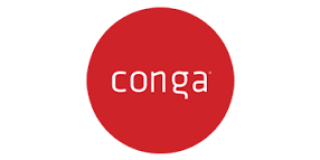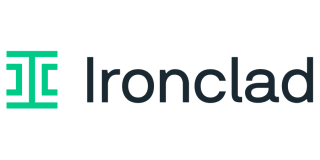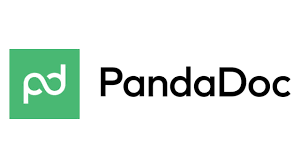Smart Contract Management Software: Streamlining Your Operations
In today’s rapidly evolving business landscape, efficient contract management has become a cornerstone of successful B2B operations. As companies increasingly adopt Software as a Service (SaaS) solutions, the need for robust contract management tools has grown exponentially. This comprehensive guide delves into the world of SaaS contract management, exploring its definition, purpose, benefits, and top software solutions. We’ll also clarify the distinction between contract management and Customer Relationship Management (CRM) systems, providing you with a thorough understanding of this critical business function.
What is SaaS Contract Management?
SaaS contract management refers to the process of creating, executing, analyzing, and monitoring contracts within a cloud-based software environment. This approach leverages the power of SaaS technology to streamline the entire contract lifecycle, from initial drafting to renewal or termination.
Key Components of SaaS Contract Management:
- Contract Creation: Utilizing templates and clause libraries to draft agreements efficiently.
- Negotiation: Facilitating collaborative editing and version control during the negotiation process.
- Approval Workflows: Implementing automated approval processes to ensure proper review and authorization.
- E-Signature Integration: Enabling secure electronic signing for faster execution.
- Contract Repository: Maintaining a centralized, searchable database of all contracts and related documents.
- Monitoring and Alerts: Tracking key dates, milestones, and obligations to ensure compliance.
- Analytics and Reporting: Generating insights from contract data to inform business decisions.
- Integration Capabilities: Connecting with other business systems for seamless data flow.
SaaS contract management solutions offer these functionalities through cloud-based platforms, providing accessibility, scalability, and regular updates without the need for on-premises infrastructure.
What is the Purpose of Contract Management Software?
Contract management software serves as a comprehensive solution to address the complexities and challenges associated with managing numerous business agreements. Its primary purpose is to optimize the contract lifecycle, reduce risks, and maximize the value derived from contractual relationships.
Key Purposes of Contract Management Software:
- Centralization and Organization
- Creates a single source of truth for all contract-related information
- Eliminates the need for manual filing systems and reduces the risk of lost documents
- Enables quick retrieval of contracts and associated metadata
- Risk Mitigation
- Identifies potential compliance issues and contractual risks
- Ensures adherence to regulatory requirements
- Tracks changes in contract terms and conditions across versions
- Efficiency and Productivity
- Automates repetitive tasks in the contract lifecycle
- Reduces time spent on contract creation, review, and approval processes
- Minimizes errors associated with manual data entry and contract management
- Visibility and Transparency
- Provides real-time status updates on contract progress
- Offers insights into contract performance and obligations
- Facilitates better decision-making through comprehensive reporting
- Cost Reduction
- Minimizes legal expenses by standardizing contract language
- Reduces administrative overhead associated with contract management
- Prevents revenue leakage by tracking renewal dates and contract terms
- Collaboration and Communication
- Enables secure sharing of contract documents with internal and external stakeholders
- Facilitates collaborative editing and negotiation processes
- Improves communication between legal, procurement, and other departments
- Compliance Management
- Ensures contracts adhere to internal policies and external regulations
- Tracks and manages compliance-related tasks and obligations
- Provides audit trails for all contract-related activities
- Performance Monitoring
- Tracks key performance indicators (KPIs) related to contract execution
- Identifies areas for improvement in contract terms and processes
- Helps optimize supplier and vendor relationships
By fulfilling these purposes, contract management software becomes an indispensable tool for businesses looking to maintain a competitive edge in today’s complex and fast-paced business environment.
Best SaaS Contract Management Software

DocuSign CLM (Contract Lifecycle Management)

Conga Contracts

IronClad

ContractWorks

PandaDoc

Icertis Contract Intelligence

Agiloft

Concord
When choosing a SaaS contract management solution, consider factors such as:
- The size and complexity of your contract portfolio
- Integration requirements with existing systems
- Specific industry regulations and compliance needs
- Budget constraints and ROI expectations
- User adoption and change management considerations
It’s recommended to take advantage of free trials or demos offered by these providers to assess the fit for your organization’s unique needs.
What are the Benefits of SaaS Contract Management?
Implementing a SaaS contract management solution offers numerous advantages that can significantly impact a company’s operational efficiency, risk management, and bottom line. Let’s explore these benefits in detail:
- Enhanced Efficiency and Productivity
- Automated Workflows: Streamline contract creation, review, and approval processes, reducing manual intervention and accelerating cycle times.
- Template Management: Utilize pre-approved templates and clause libraries to create contracts quickly and consistently.
- Bulk Actions: Perform mass updates, renewals, or terminations, saving time on repetitive tasks.
- Improved Visibility and Control
- Centralized Repository: Store all contracts and related documents in a single, searchable database for easy access and management.
- Real-time Tracking: Monitor contract status, key dates, and milestones in real-time, ensuring nothing falls through the cracks.
- Audit Trails: Maintain detailed logs of all contract-related activities for compliance and accountability.
- Risk Mitigation and Compliance
- Automated Alerts: Receive notifications for upcoming deadlines, renewals, and compliance requirements.
- Version Control: Track changes and maintain a clear history of contract revisions and approvals.
- Standardization: Ensure consistency in contract language and terms across the organization, reducing legal risks.
- Cost Savings and Revenue Optimization
- Reduced Administrative Overhead: Minimize the need for manual contract management tasks, freeing up resources for strategic activities.
- Preventing Revenue Leakage: Identify opportunities for upselling, cross-selling, and timely renewals.
- Negotiation Insights: Leverage historical data and analytics to inform future contract negotiations and secure better terms.
- Enhanced Collaboration and Communication
- Secure Sharing: Safely share contract documents with internal stakeholders and external parties.
- Real-time Editing: Collaborate on contract drafts simultaneously, streamlining the negotiation process.
- Comment and Annotation Tools: Facilitate discussions and gather feedback directly within the contract management platform.
- Data-Driven Decision Making
- Advanced Analytics: Generate insights from contract data to inform business strategies and improve processes.
- Custom Reporting: Create tailored reports to track KPIs and measure contract performance.
- Forecasting Capabilities: Use historical data to predict future contract trends and outcomes.
- Scalability and Flexibility
- Cloud-Based Access: Access contracts and perform management tasks from anywhere, supporting remote work and global operations.
- Easy Scaling: Adapt to growing contract volumes without significant infrastructure investments.
- Regular Updates: Benefit from continuous improvements and new features without the need for manual upgrades.
- Integration with Existing Systems
- CRM Integration: Sync contract data with customer relationship management systems for a holistic view of client interactions.
- ERP Connectivity: Link contract information with enterprise resource planning systems for improved financial planning and reporting.
- E-Signature Integration: Streamline the signing process with built-in or third-party e-signature capabilities.
- Improved Customer and Vendor Relationships
- Faster Turnaround Times: Expedite contract processes, leading to quicker deal closures and improved satisfaction.
- Consistent Experience: Provide a standardized, professional approach to contract management across all interactions.
- Proactive Management: Address potential issues or opportunities before they impact relationships.
- Environmental Impact
- Paperless Processes: Reduce paper usage and storage needs, contributing to sustainability goals.
- Reduced Travel: Minimize the need for in-person meetings for contract signings and reviews.
By leveraging these benefits, organizations can transform their contract management processes from a potential bottleneck into a strategic asset that drives business value and competitive advantage.
What is the Difference Between CRM and Contract Management?
While Customer Relationship Management (CRM) and Contract Management systems may share some overlapping functionalities, they serve distinct purposes within an organization. Understanding these differences is crucial for businesses to implement the right tools for their specific needs.
Customer Relationship Management (CRM)
CRM systems are designed to manage an organization’s interactions with current and potential customers. They focus on sales, marketing, and customer service processes.
Key Features of CRM:
- Contact Management: Store and organize customer and prospect information.
- Sales Pipeline Tracking: Monitor and manage the sales process from lead to closure.
- Marketing Automation: Manage marketing campaigns and track their effectiveness.
- Customer Service Tools: Handle customer inquiries, complaints, and support tickets.
- Reporting and Analytics: Analyze customer data to inform sales and marketing strategies.
Primary Goals of CRM:
- Improve customer relationships
- Increase sales efficiency
- Enhance marketing effectiveness
- Provide better customer service
Contract Management
Contract Management systems, on the other hand, are specifically designed to handle the creation, execution, and analysis of legal agreements throughout their lifecycle.
Key Features of Contract Management:
- Contract Creation and Templating: Draft and customize contracts using pre-approved templates.
- Approval Workflows: Automate the review and approval process for contracts.
- E-Signature Capabilities: Facilitate digital signing of contracts.
- Obligation Management: Track and manage contractual obligations and milestones.
- Compliance Monitoring: Ensure adherence to regulatory requirements and internal policies.
- Contract Analytics: Analyze contract terms, performance, and risks.
Primary Goals of Contract Management:
- Streamline the contract lifecycle
- Reduce legal and compliance risks
- Improve contract visibility and accessibility
- Enhance operational efficiency in contract-related processes
Key Differences
- Focus
- CRM: Customer relationships and sales processes
- Contract Management: Legal agreements and their lifecycle
- User Base
- CRM: Primarily used by sales, marketing, and customer service teams
- Contract Management: Mainly utilized by legal, procurement, and contract administration departments
- Data Handled
- CRM: Customer information, sales data, marketing metrics
- Contract Management: Contract terms, clauses, obligations, and performance data
- Lifecycle Management
- CRM: Manages customer lifecycle from prospect to loyal customer
- Contract Management: Handles contract lifecycle from creation to expiration or renewal
- Risk Management
- CRM: Focuses on sales risks and customer churn
- Contract Management: Addresses legal, financial, and compliance risks associated with contracts
- Analytics
- CRM: Analyzes customer behavior, sales trends, and marketing effectiveness
- Contract Management: Examines contract performance, compliance, and optimization opportunities
- Integration Needs
- CRM: Often integrates with marketing automation and customer service tools
- Contract Management: Typically integrates with e-signature, ERP, and sometimes CRM systems
Overlap and Integration
While distinct, CRM and Contract Management systems can complement each other:
- Contract Initiation: CRM data can trigger the creation of contracts based on sales activities.
- Customer Information: Contract details can be linked to customer profiles in CRM for a comprehensive view.
- Renewal Management: Contract expiration dates in the contract management system can inform CRM-driven renewal campaigns.
- Performance Insights: Contract performance data can enhance customer relationship strategies in CRM.
Many organizations benefit from integrating their CRM and Contract Management systems to create a seamless flow of information across the customer journey and contract lifecycle.
Choosing the Right Solution
When deciding between CRM and Contract Management solutions (or considering both), organizations should:
- Assess their primary needs (customer relationship management vs. contract lifecycle management)
- Evaluate the specific features required to meet their business objectives
- Consider the potential for integration between systems if both are necessary
- Analyze the return on investment for each solution
- Factor in user adoption and training requirements
In many cases, especially for larger organizations or those with complex contractual relationships, implementing both CRM and Contract Management systems can provide the most comprehensive approach to managing customer relationships and legal agreements.
Conclusion
SaaS contract management has emerged as a critical tool for businesses looking to optimize their operations, reduce risks, and drive growth in an increasingly complex business environment. By centralizing contract processes, automating workflows, and providing deep insights into contractual relationships, these solutions offer significant advantages over traditional, manual approaches to contract management.
As we’ve explored, the benefits of SaaS contract management are numerous, ranging from improved efficiency and risk mitigation to cost savings and enhanced collaboration. The market offers a variety of robust solutions catering to different organizational needs and scales, from user-friendly options for small businesses to sophisticated platforms for large enterprises.